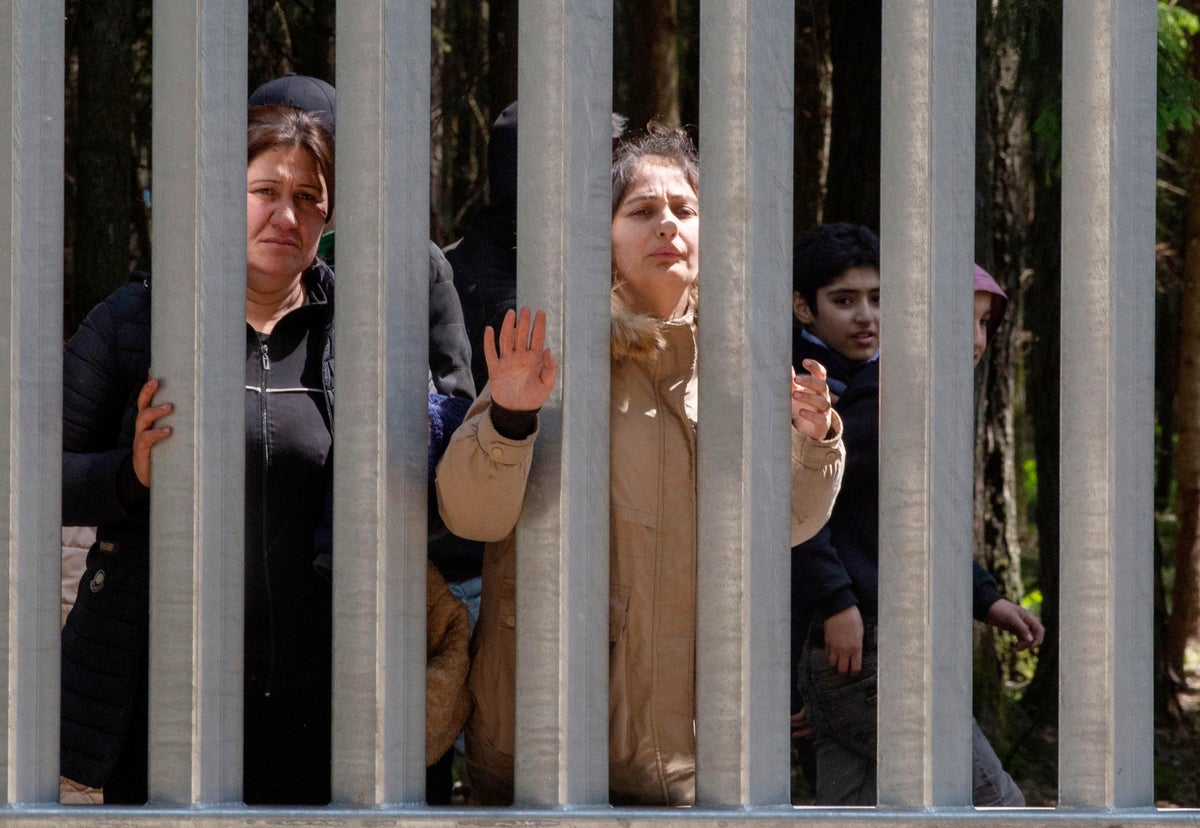
The European Union on Wednesday gave a greenlight to Poland and other countries on Europe’s eastern flank to temporarily suspend asylum rights when they believe that Belarus and Russia are “weaponizing” migrants to destabilize the bloc.
Poland’s Prime Minister Donald Tusk announced plans in October to introduce a law that would suspend asylum applications for up to 60 days as his country struggles with migratory pressures on its border with Belarus, angering human rights groups. The freeze has not yet been enacted.
The number of migrants arriving at the borders of EU member states from Belarus has increased by 66% this year, compared with 2023. Belarus authorities are accused of helping migrants to get into Europe, including by supplying them with ladders and other devices, according to the European Commission.
The EU’s executive branch also accuses Russian authorities of “facilitating these movements, given that more than 90% of migrants illegally crossing the Polish-Belarusian border have a Russian student or tourist visa.”
It said that “in view of the serious nature of the threat, as well as its persistence,” EU member countries can temporarily suspend a migrant’s request for international protection in exceptional circumstances. Some migrants are accused of attacking border guards.
The commission monitors EU laws to ensure that they are respected. The right for people to seek asylum when they fear for their lives or safety in their home countries is encoded in the bloc’s legislation and international law.
European Commission Executive Vice-President Henna Virkkunen said a freeze on asylum rights should only be used “when the weaponization is posing security threats for member states and exceptional measures are needed.”
Member states would be permitted to restrict a migrant’s access to asylum rights, but only under “very strict conditions and (with)in legal limits," she said. "So it means that they have to be truly exceptional, temporary, proportionate and for clearly defined cases.”
Virkkunen, who declined to provide details, said the commission is providing 170 million euros ($179 million) to Poland, Finland, Estonia, Latvia, Lithuania and non-EU country Norway to boost their border defenses, including upgrading electronic surveillance equipment, installing mobile detectors, improving telecommunication networks, and countering drones that might be sent into EU airspace.







